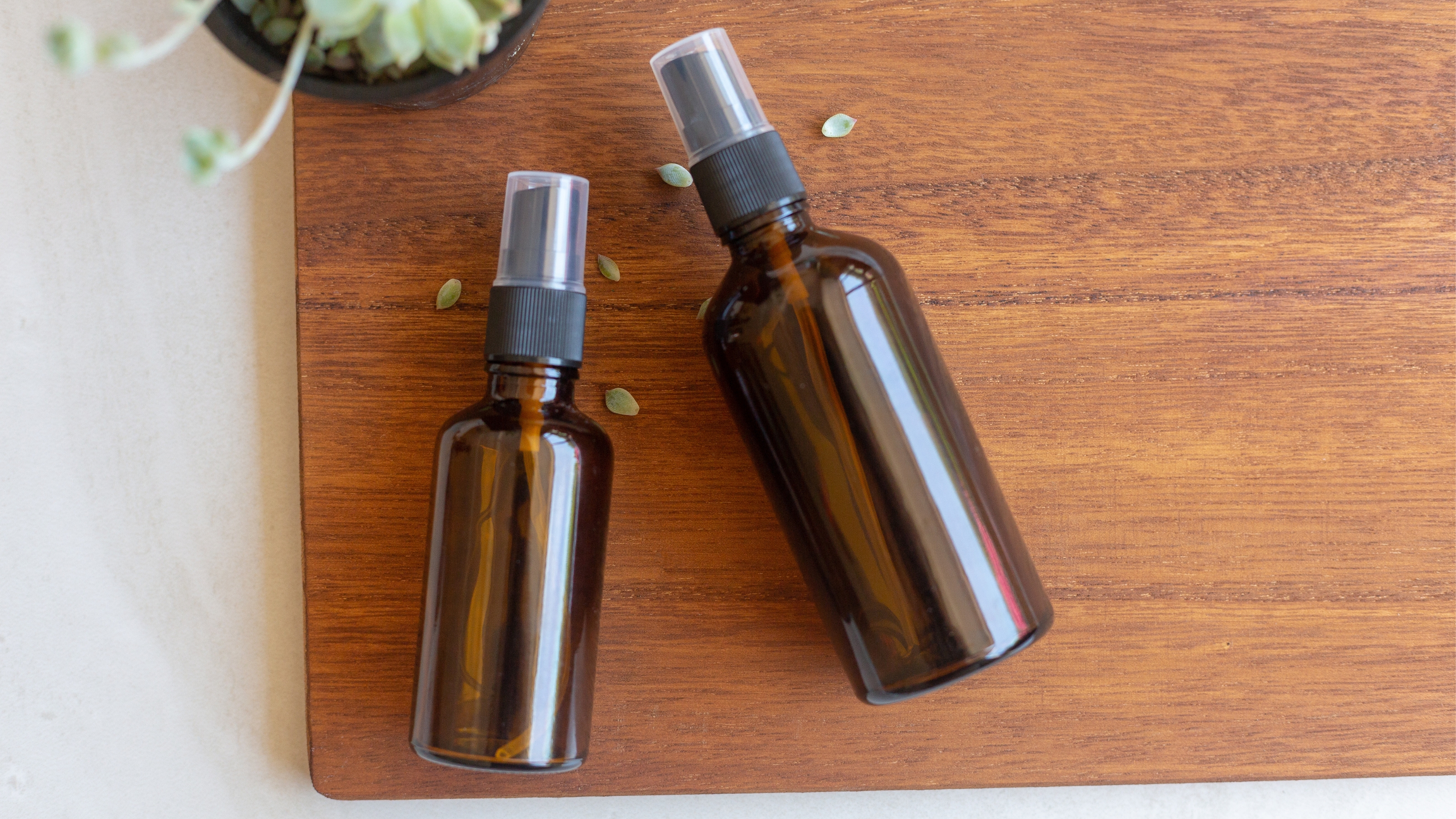

Making a homemade bug spray is an effective, natural, and eco-friendly way to keep pests at bay — but what ingredients do you need and which are most effective?
Our expert guide walks you through the simple steps to craft your very own homemade spray for a fresh-smelling and intruder-free space.
When it comes to natural ways to repel bugs, look no further than this handy guide.
How to make a homemade bug spray like a pro
Though there are many ingenious ways to keep pests out of your yard, sometimes a carefully crafted spray is just the thing.
Our industry pros reveal the simple steps and most effective ingredients for a safe and effective homemade bug repellent. With a few simple ingredients, you can create a bug spray that works for your lawn, home, vegetable plants, and yard.
Where our experts have suggested products, we've sourced high-quality items from trusted retailers.
All prices correct at time of publication.
1. Mix the key ingredients
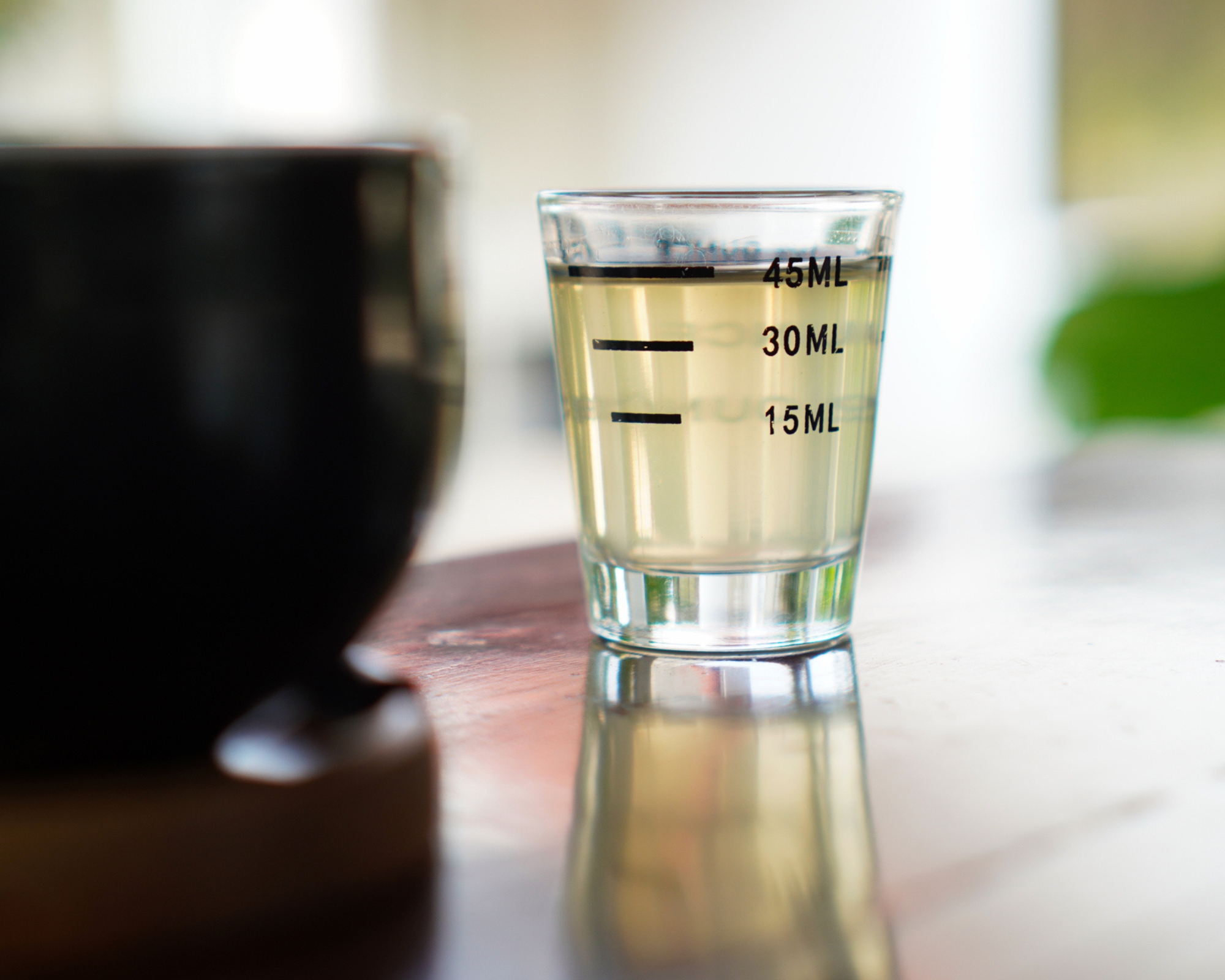
An effective homemade bug spray requires a carefully-selected mix of ingredients.
In a bowl or jug, or directly into your spray bottle, combine a cup of distilled water with one cup of witch hazel and a tablespoon of apple cider vinegar.
Karina Toner, operations manager at Spekless Cleaning, says, "Witch hazel is a natural astringent that helps to disperse essential oils, making it an excellent base for a bug spray that's both effective but gentle on skin."
Both Karina and property expert James Heartquist recommend Thayers Witch Hazel from Amazon. James says, "It’s a high-quality, natural astringent that helps the bug spray dry quickly on your skin without causing irritation. It’s also alcohol-free, which makes it gentle and suitable for all skin types."
The vinegar is highly effective against ants, spiders, and flies due to its strong smell and acidic nature. James recommends Bragg Organic Apple Cider Vinegar from Target. He says, "Known for its antibacterial properties and effectiveness in repelling insects, this comes from a trusted brand, so you know you’re getting a pure, organic product that’s safe to use in your homemade bug spray."
Other optional ingredients include a tablespoon of vodka — which can be particularly effective on soft-bodied insects such as aphids and mealybugs — and dish soap. John Target, of Target Pest Control, adds, "For extra potency, add a tablespoon of dish soap. The soap helps break down the bug’s exoskeleton."
For spray bottles, James recommends Sally's Organics Glass Spray Bottles from Amazon. He adds, "These are durable and prevent the essential oils from degrading. Glass bottles are also reusable and eco-friendly, making them a great choice for storing your homemade bug spray."
2. Add essential oils
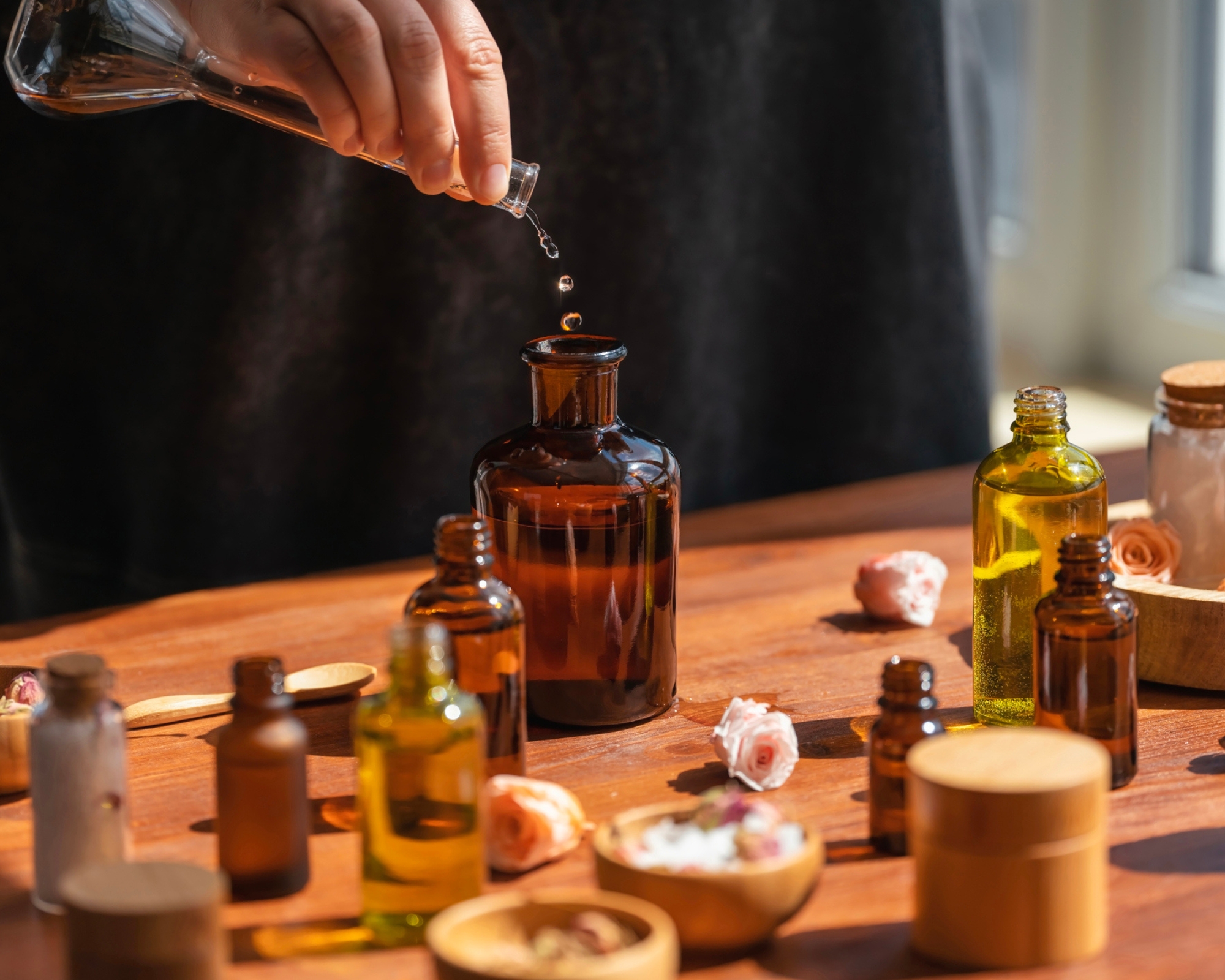
Essential oils have an important dual function — not only do they contain natural compounds that are toxic or repellent to insects, they also smell great.
Add 10-20 drops of your preferred oils to the vinegar-water solution. Different oils provide different strengths, so combine them to suit your needs. For example, lemon eucalyptus, tea tree and citronella oil all make for strong mosquito or tick repellents, while peppermint and lavender oil can handle a variety of indoor pests including fleas, spiders and ants.
Karina says, "Personally, I'm a fan of combining eucalyptus and tea tree oil — not only do they provide a robust defense against bugs, they also have strong antibacterial properties."
This Spring Valley Pure Australian Tea Tree Oil from Walmart comes with great reviews and is good on your skin.
John adds, "For extra potency, you can also add 10 drops of neem oil, which has insecticidal properties."
This Natria Neem Oil from Target is easy to use and will keep aphids, whiteflies, and spider mites in check.
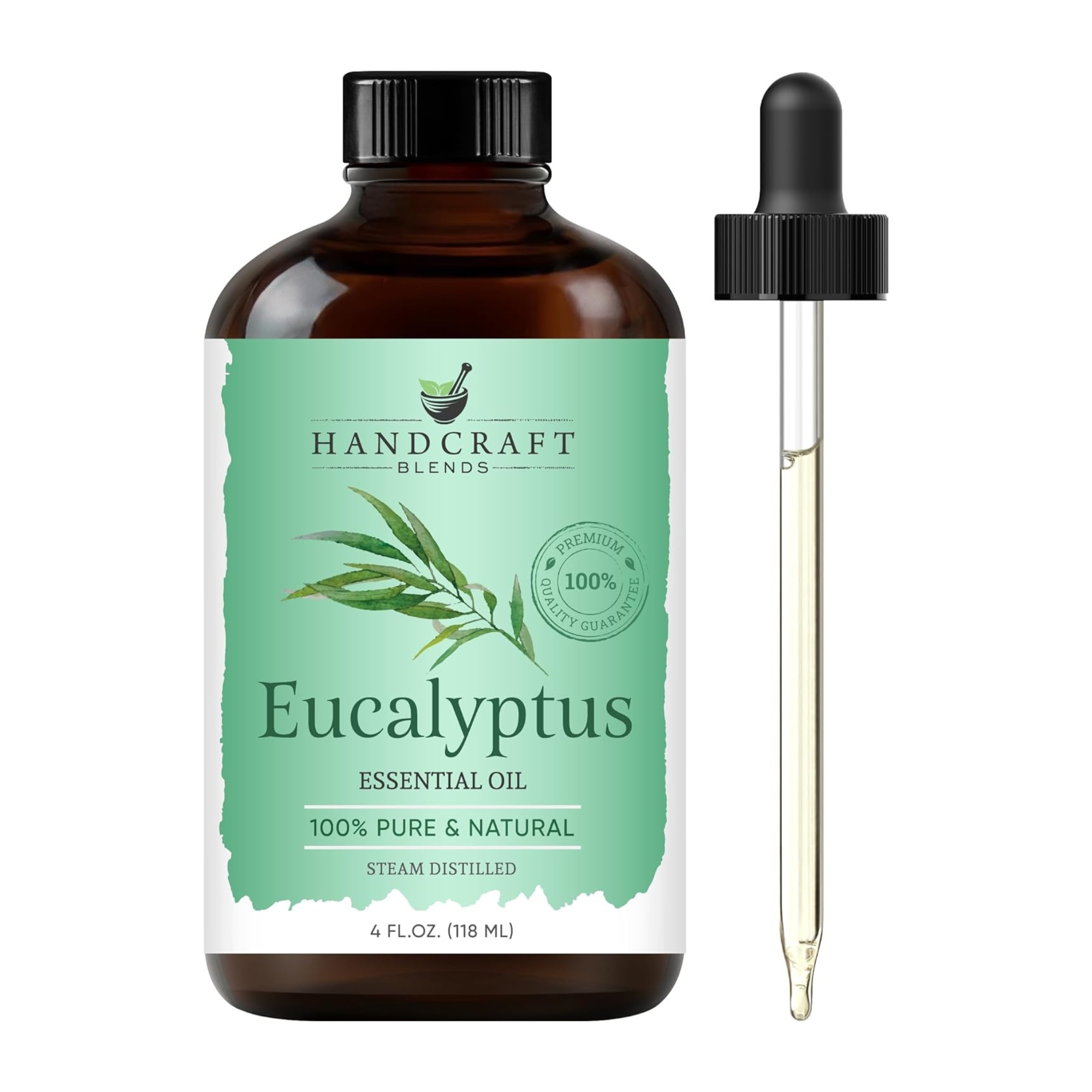
Price: $9.99
Size: 4 Fl Oz
This 100% pure eucalyptus oil has a bold, herbal smell that is both relaxing and great at repelling bugs like ants or spiders. The amber glass bottle keeps out UV rays and protects the oil from degrading in sunlight.
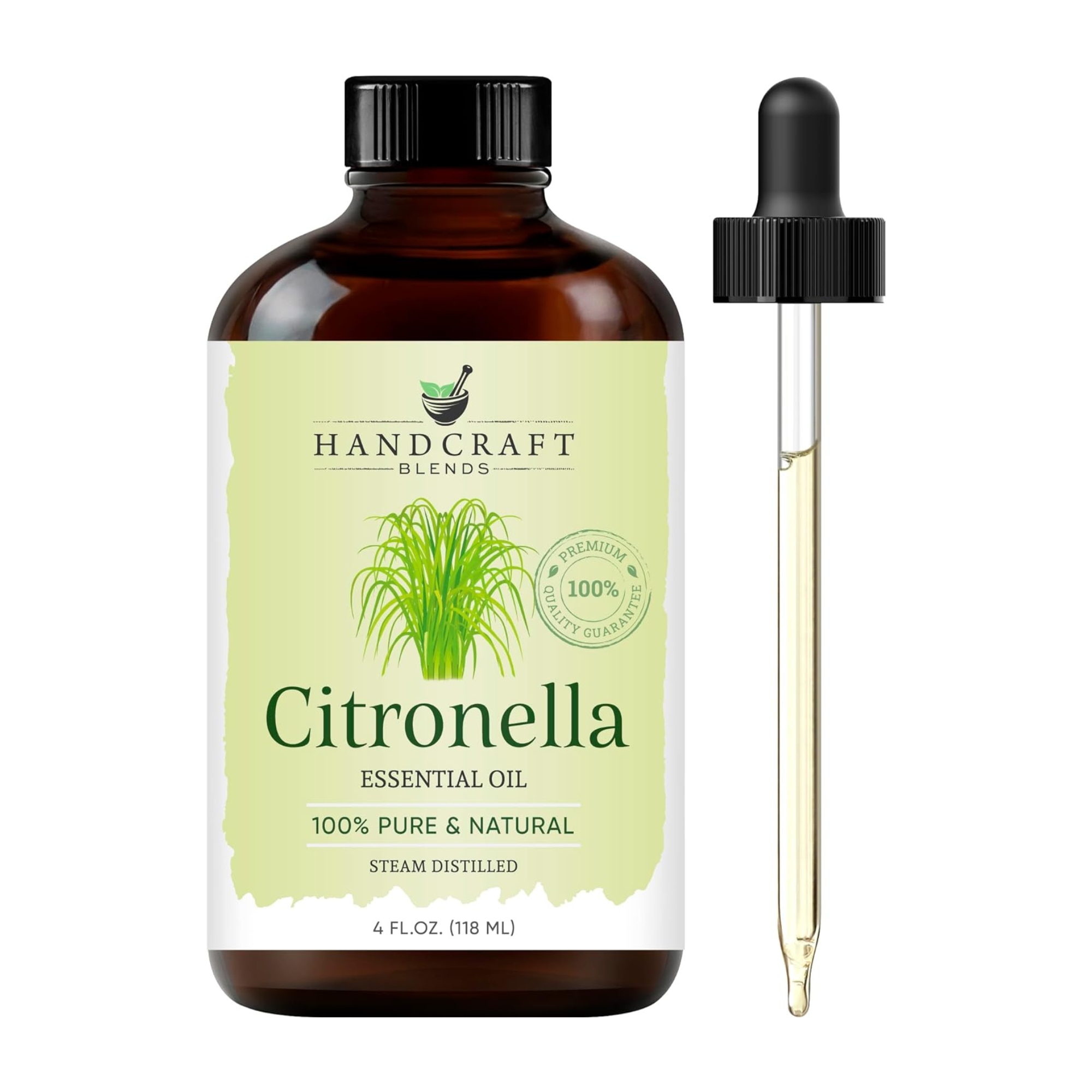
Price: $9.99
Size: 4 Fl Oz
This Handcraft Blends Citronella is a great choice if you're looking for a scent that's bright and fresh, but effective against bugs. The lemony, grassy aroma helps combat insects that may come into your home.
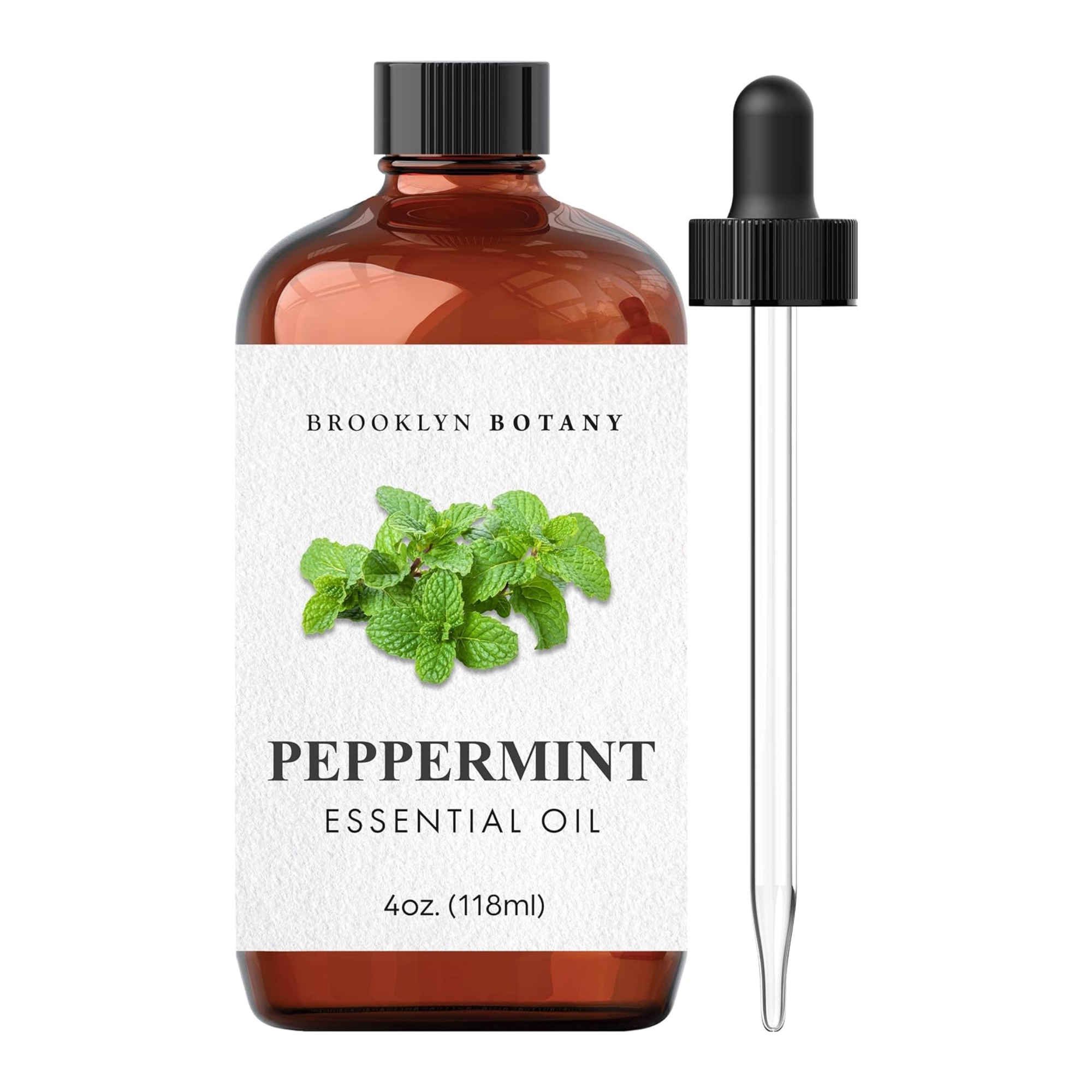
Price: $9.99
Size: 4 Fl Oz
Peppermint oil is another great choice if you're looking for something minty and refreshing. Sourced in India, this peppermint oil is great for pest control as it's strong scent repels most bugs.
3. Shake & spray
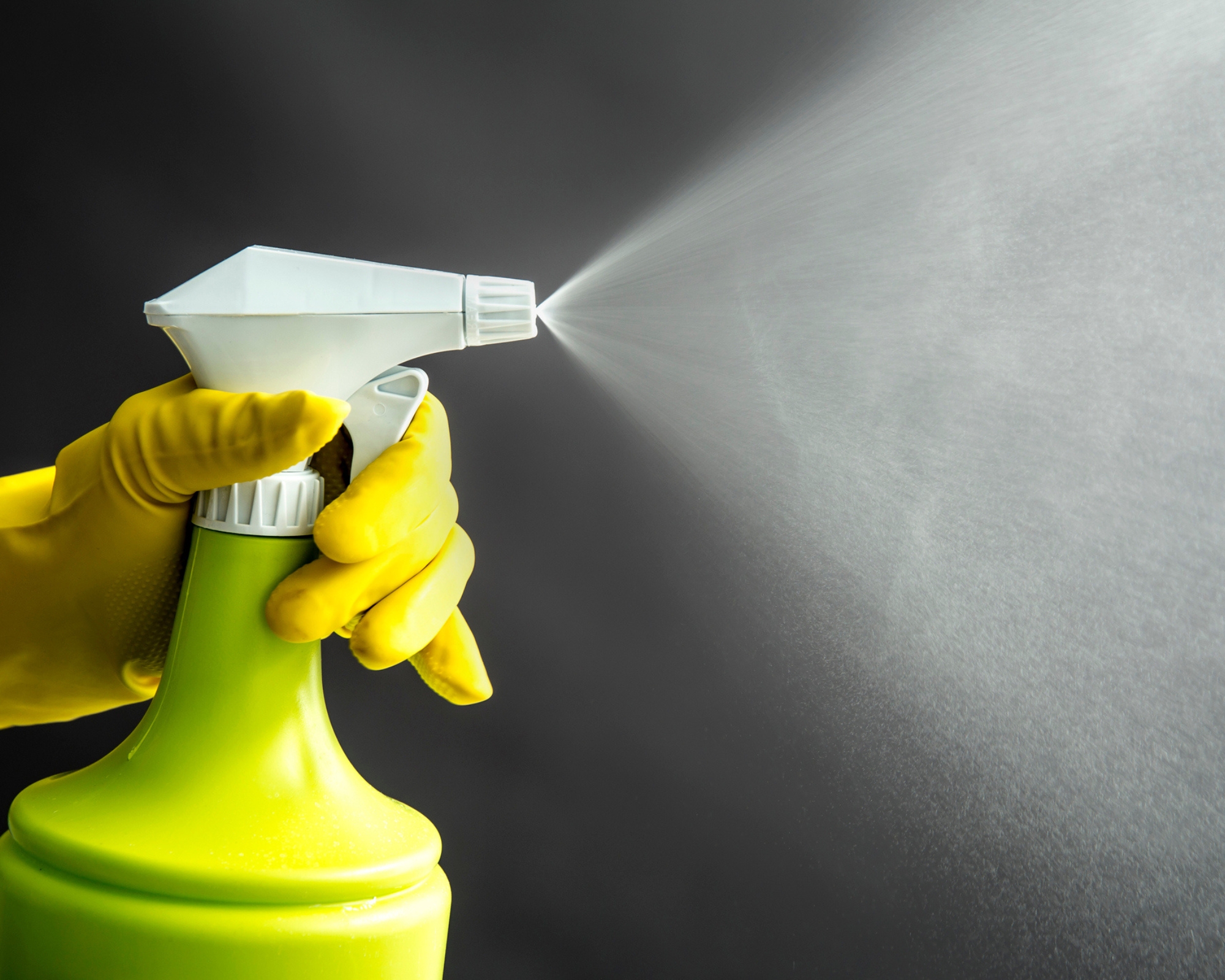
The last step is the easiest and most enjoyable. Simply shake your mixture vigorously in a spray bottle then get to work of repelling those unwanted intruders.
Apply the spray to areas where bugs are present or likely to enter. This can include door frames, window sills, and garden plants.
Avoid spraying directly on pets or near where children play. Some essential oils can be harmful if ingested or if they come into contact with sensitive skin. John says, "Keep pets away from the treated area for at least 30 minutes. Avoid using this spray on windy days to prevent it from drifting onto unintended areas."
Also, some plants may be sensitive to essential oils. Test on a small leaf before spraying extensively. John adds, "If you're using the spray in your garden, avoid spraying right before rain, as it can wash away the solution."
FAQs
What's the best homemade lawn bug spray?
Combine water, vinegar, and peppermint oil in a spray bottle. Spray your lawn weekly to deter mosquitoes, ants, and other pests.
What's the best homemade bug spray for the house?
Mix water, white vinegar, and a few drops of lavender and peppermint oil. Spray around entry points like doors and windows to keep spiders, ants, and flies out.
What's the best homemade bug spray for vegetable plants?
Combine water, a few drops of dish soap, and neem oil. Neem oil is effective against aphids, caterpillars, and beetles. Spray the solution on plants in the early morning or evening.
What's the best homemade mosquito yard spray?
Mix water, lemon eucalyptus oil, citronella oil, and a bit of witch hazel. Spray this mixture around your yard, focusing on areas where mosquitoes are likely to breed, such as standing water and shaded areas.
Meet our experts

With more than 18 years in the pest control industry, John Target knows all the tips and tricks to achieving a bug-free life. His team of trained technicians specialize in freeing homes from unwanted wildlife, including insects and rodents.

Karine is an operations manager at Spekless Cleaning, a respected cleaning company operating across multiple US states. She has more than 10 years cleaning experience and is an expert in professional cleaning solutions and helping clients with sustainable and effective cleaning.

James Heartquist is a seasoned property expert and founder of We Buy Houses Arizona. With a deep understanding of home ownership and a knack for DIY projects, he has become a trusted advisor for homeowners seeking practical and innovative solutions.
So there you have it — how to make a homemade big spray in three simple steps. By using natural ingredients, you can effectively manage pests without relying on harsh chemicals.
Next, check out how to stop spiders getting in the house.
Join our newsletter
Get small space home decor ideas, celeb inspiration, DIY tips and more, straight to your inbox!

I'm a senior writer with an English degree and NCJ qualification, plus years of experience writing news, lifestyle and consumer articles for the national and international press. I'm also a copywriter, working on a breadth of consumer and corporate projects, and a private education consultant. I live in the quiet of the countryside and love completing DIY tasks to breathe life into my small, newly-built home.